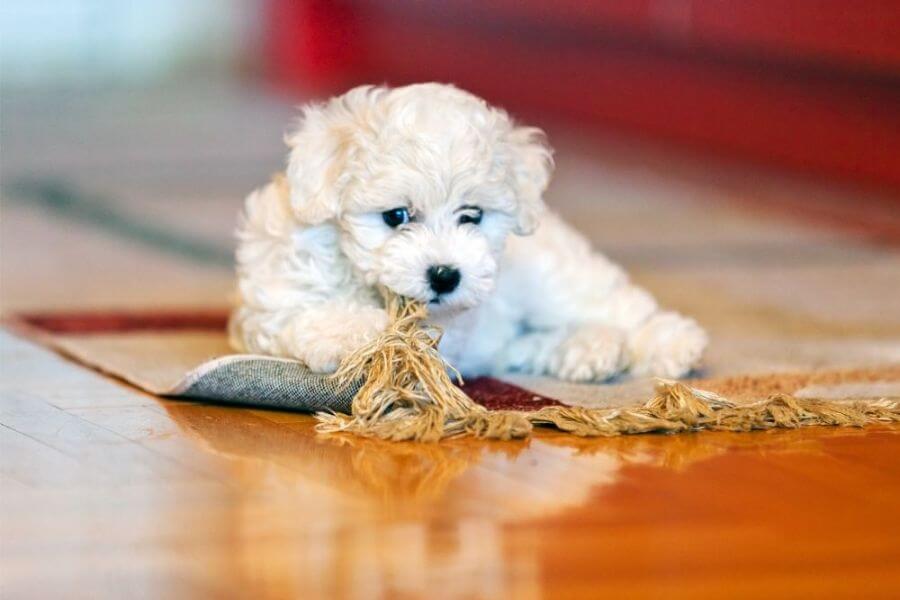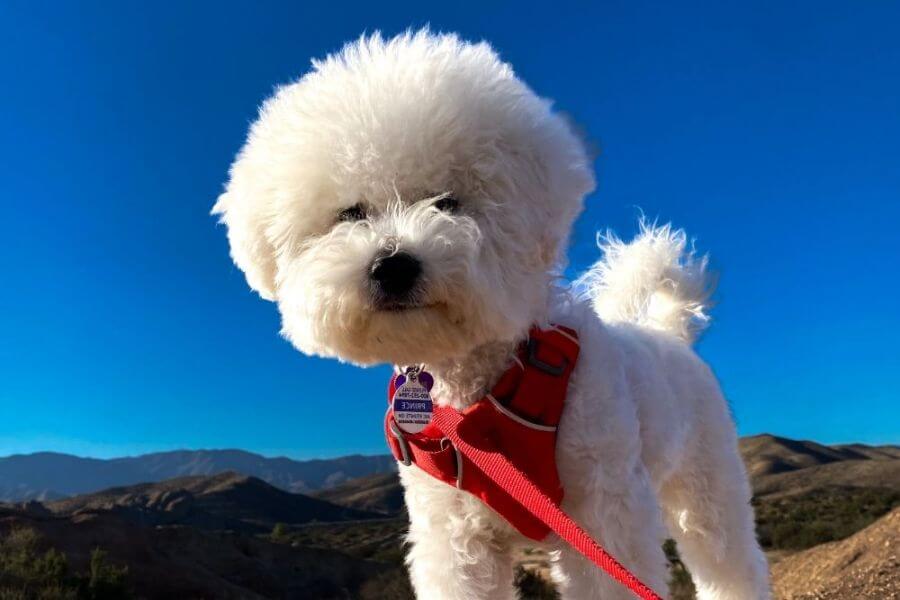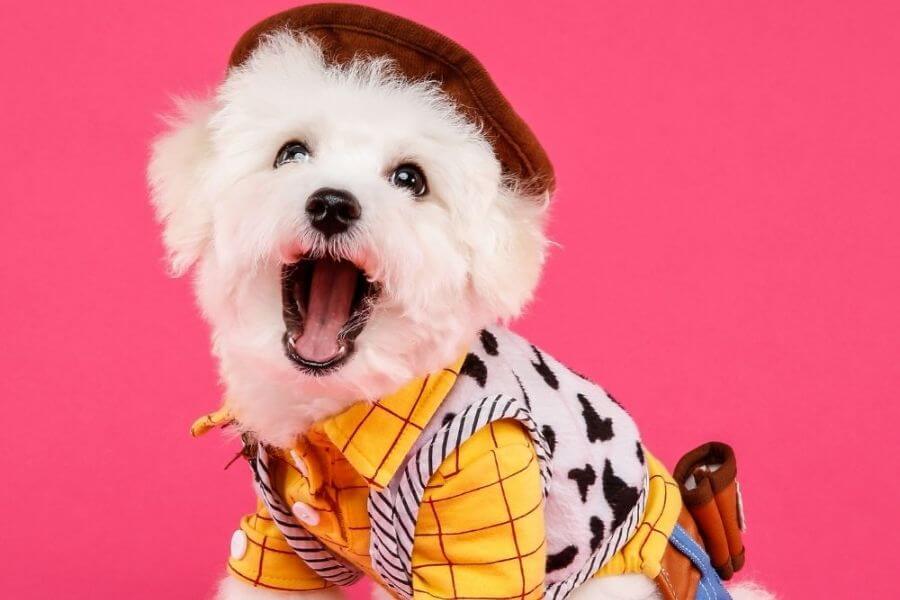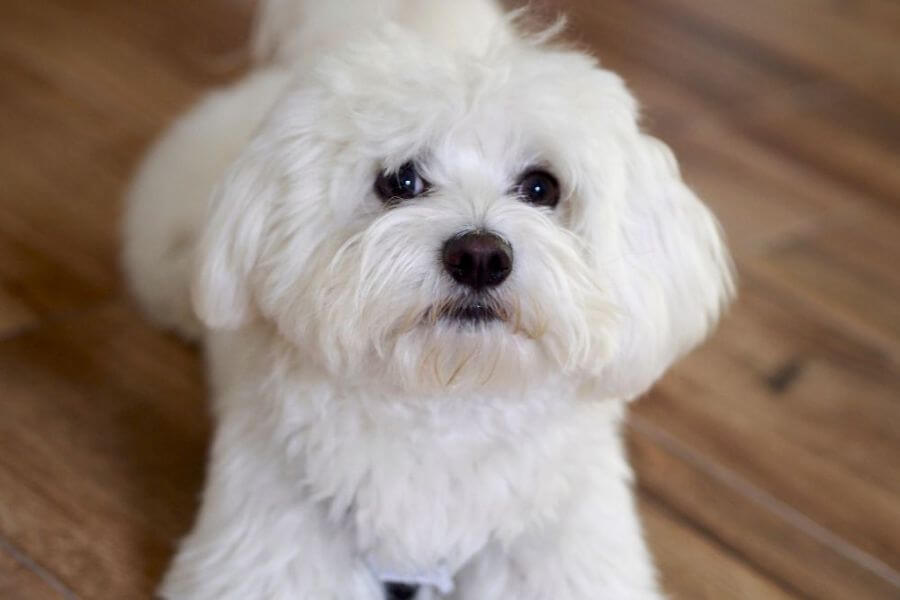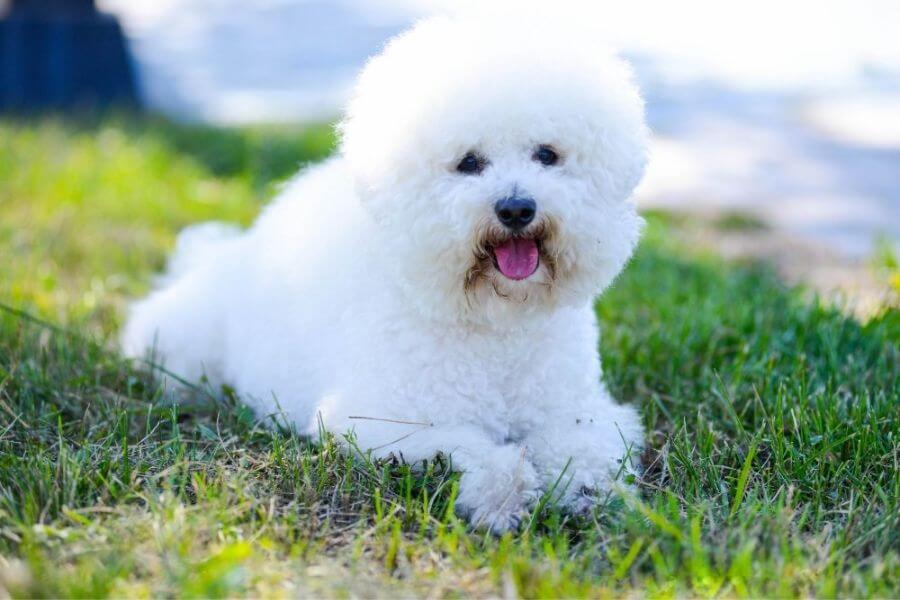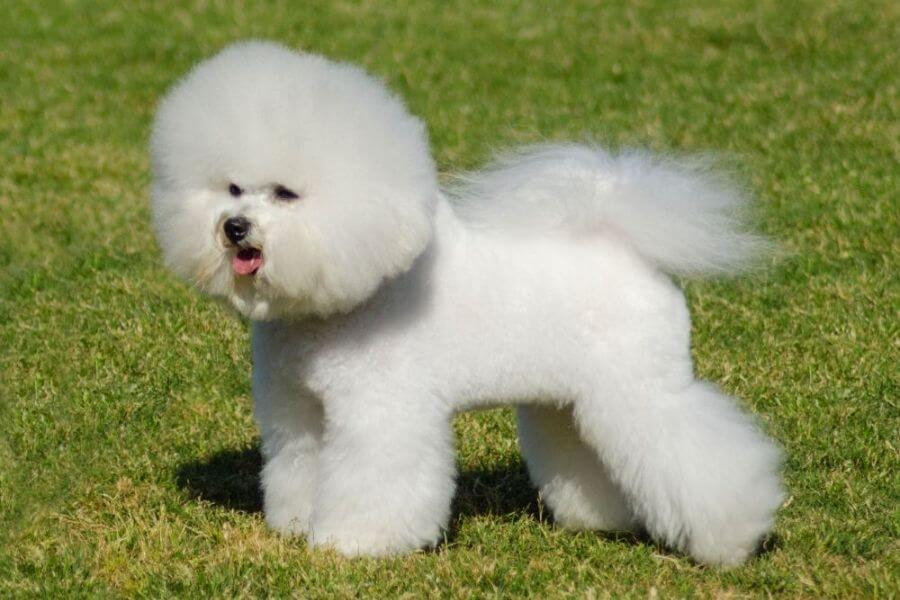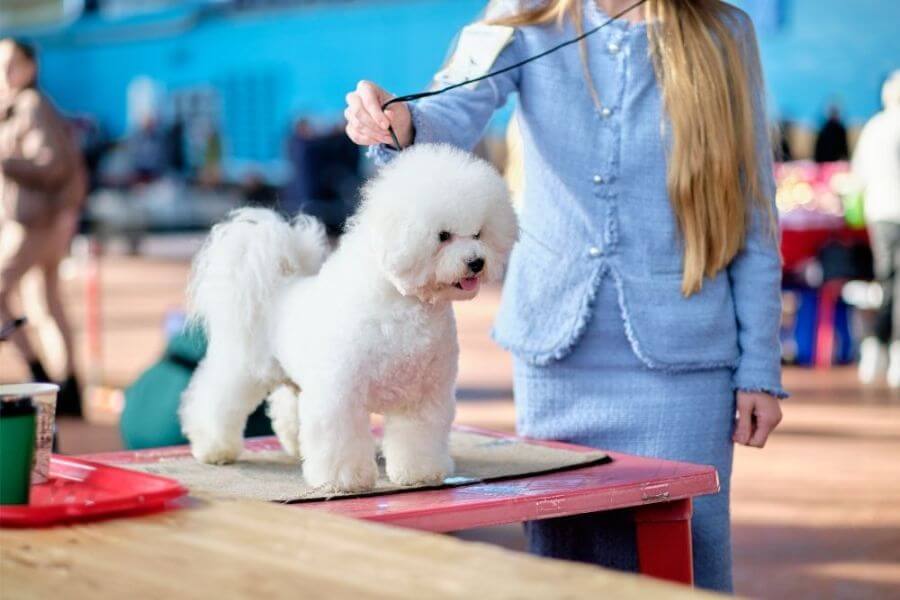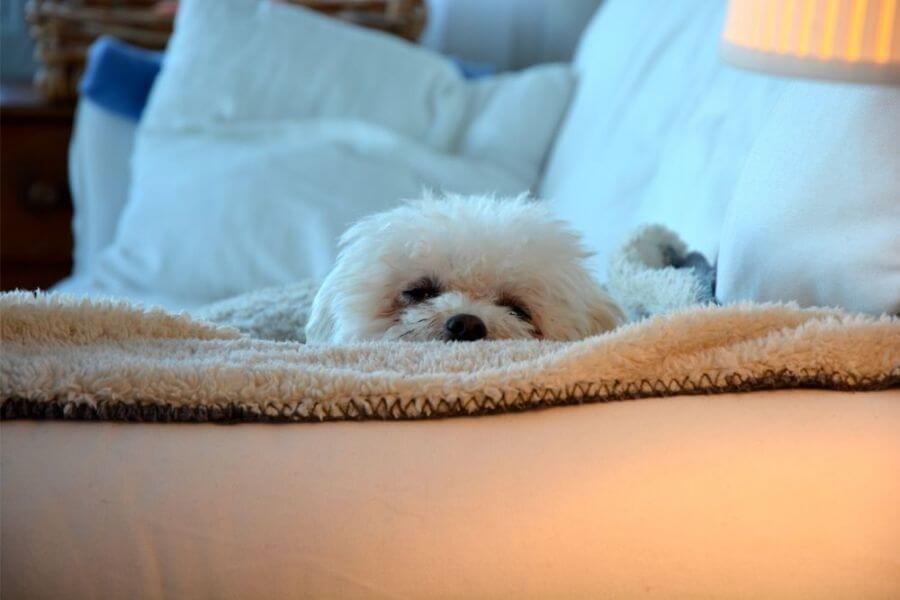Bichon Puppies For Sale

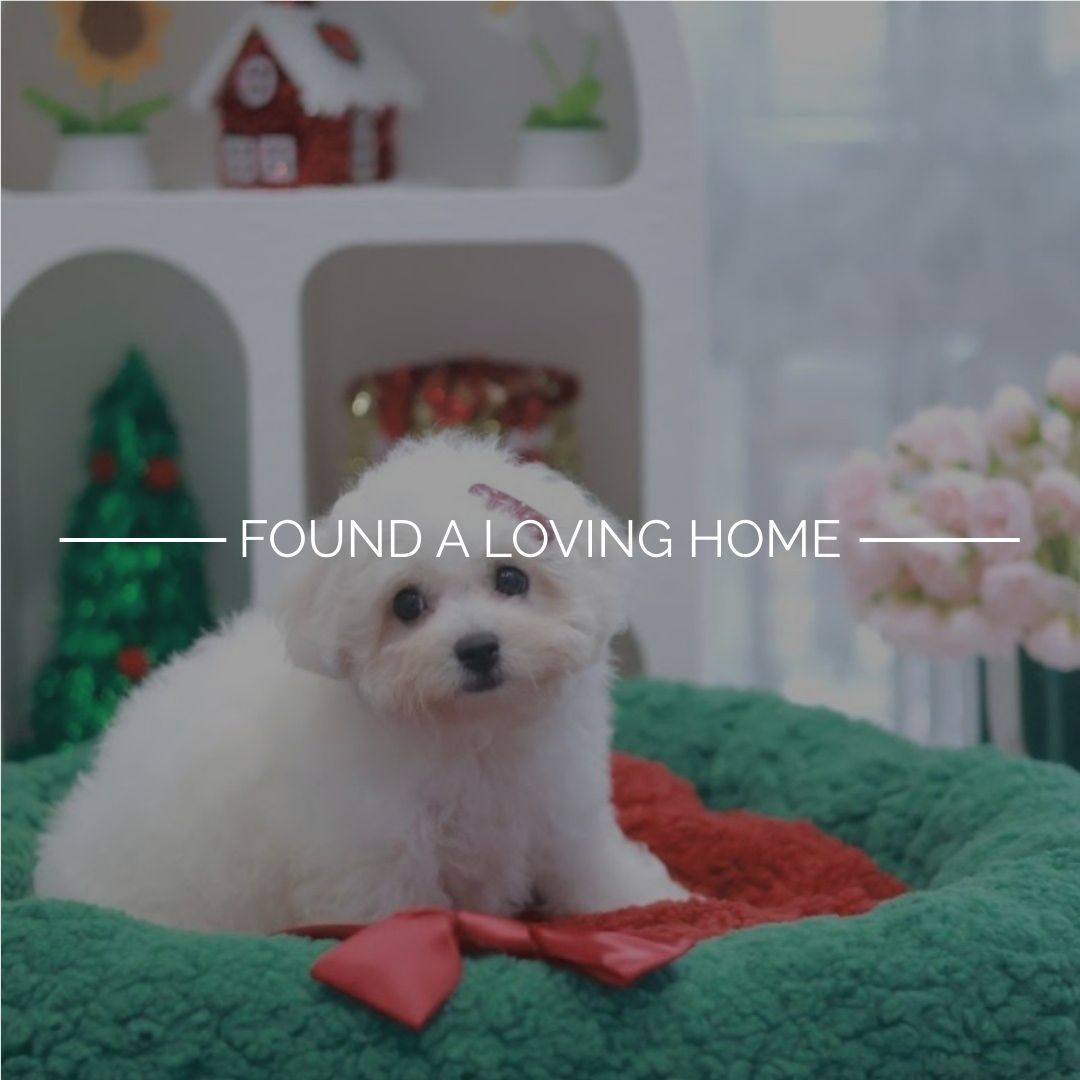
Bichon Frise (比熊犬)
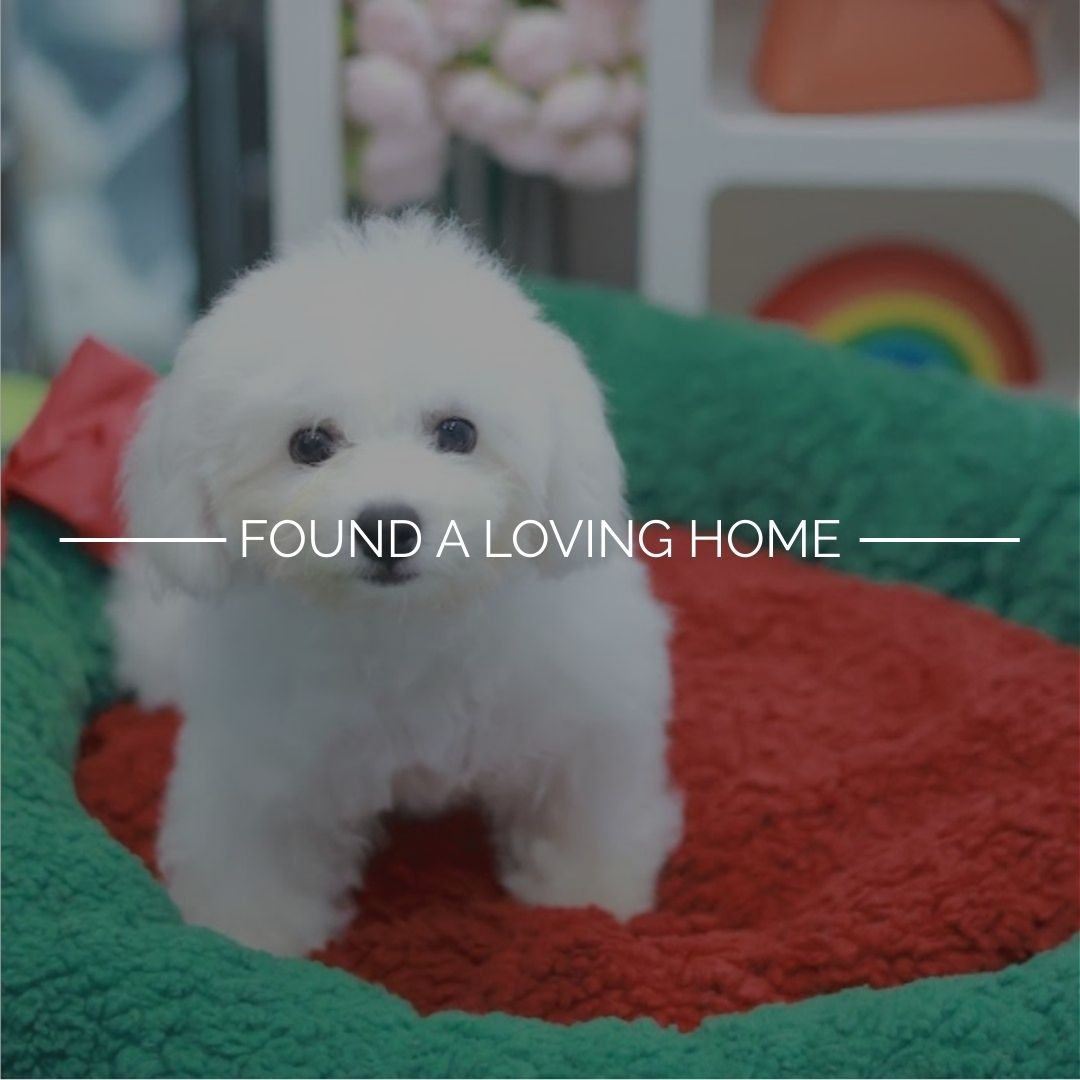
Bichon Frise (比熊犬)

Bichon Frise (比熊犬)
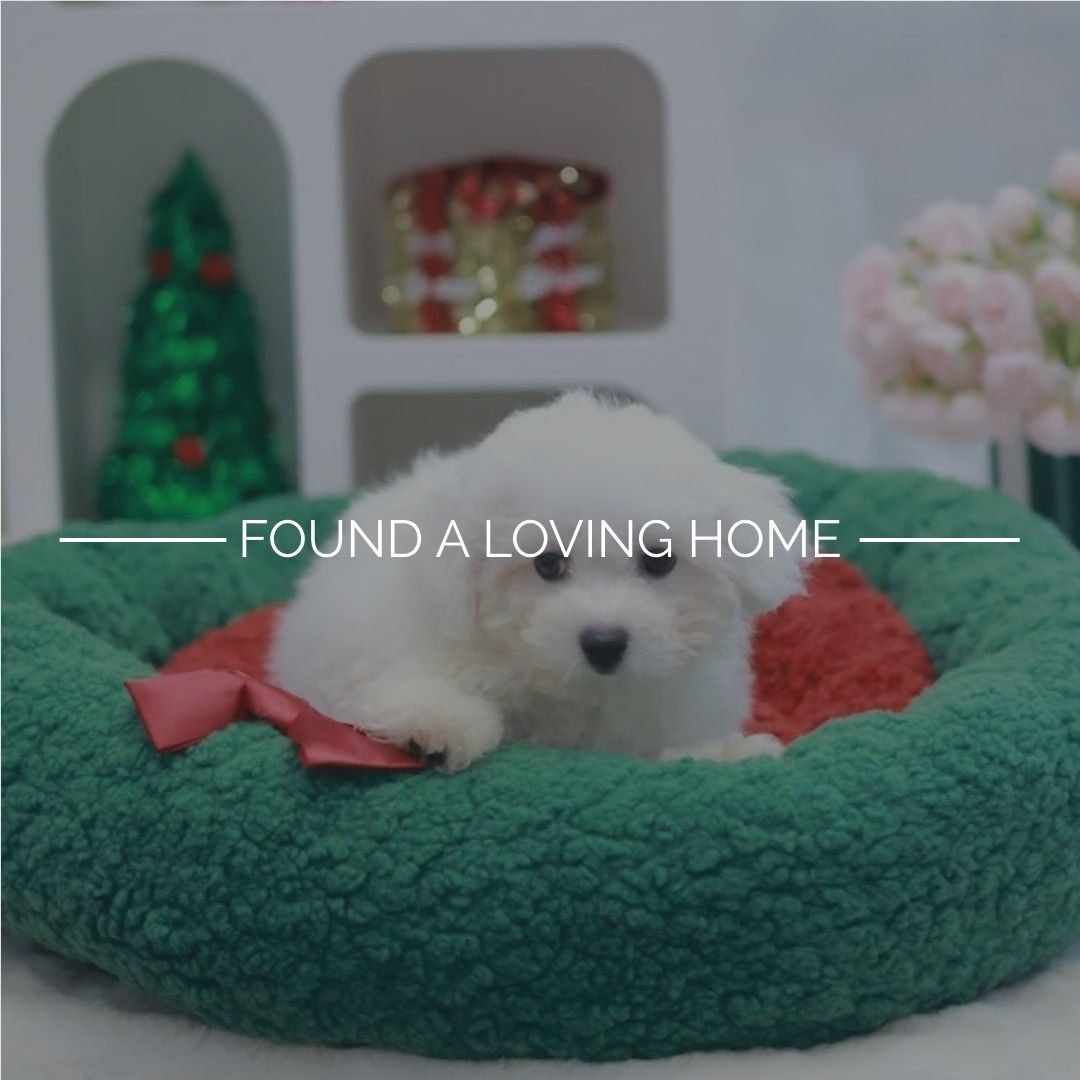
Bichon Frise (比熊犬)
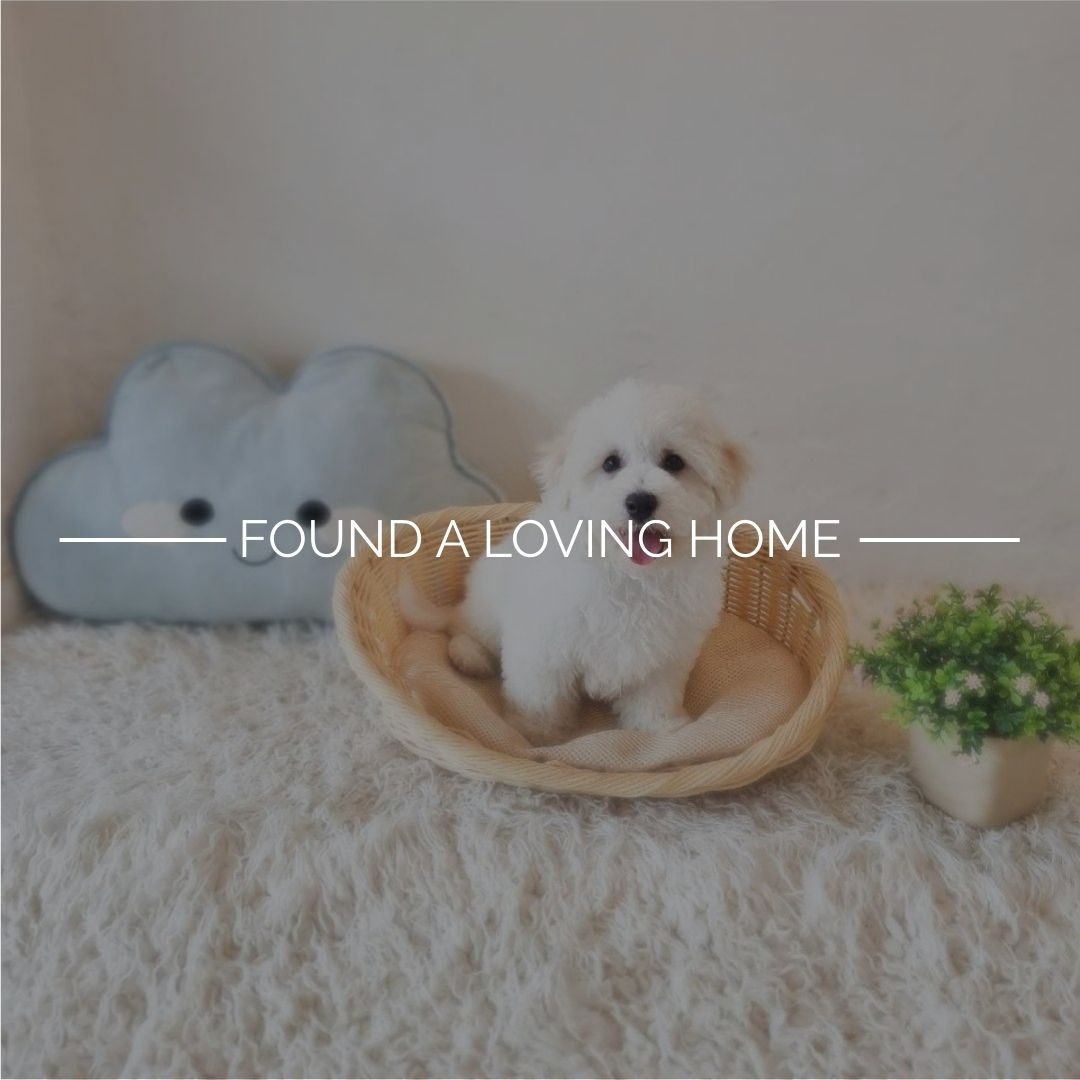
Bichon Frise (比熊犬)

Bichon Frise (比熊犬)
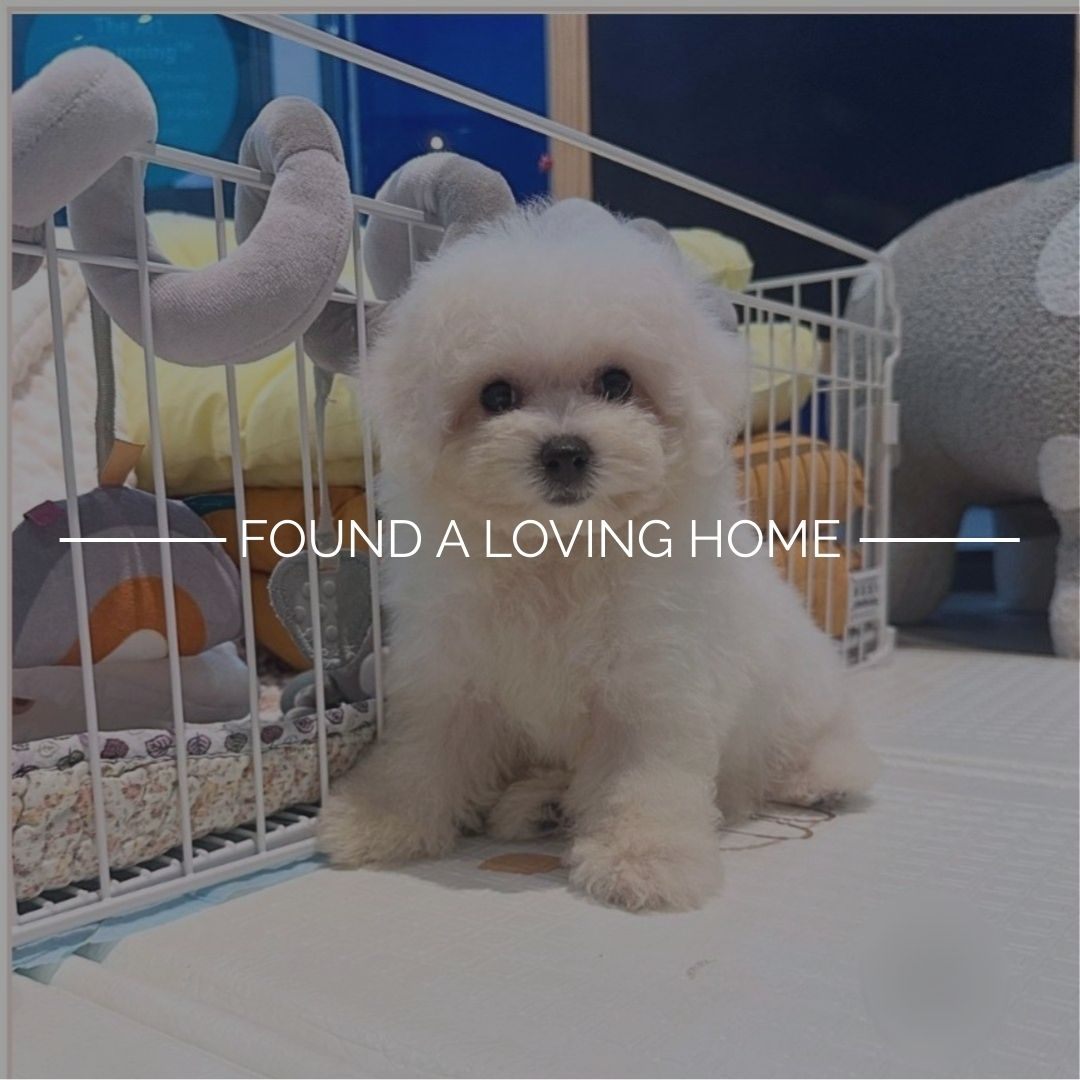
Bichon Frise (比熊犬)
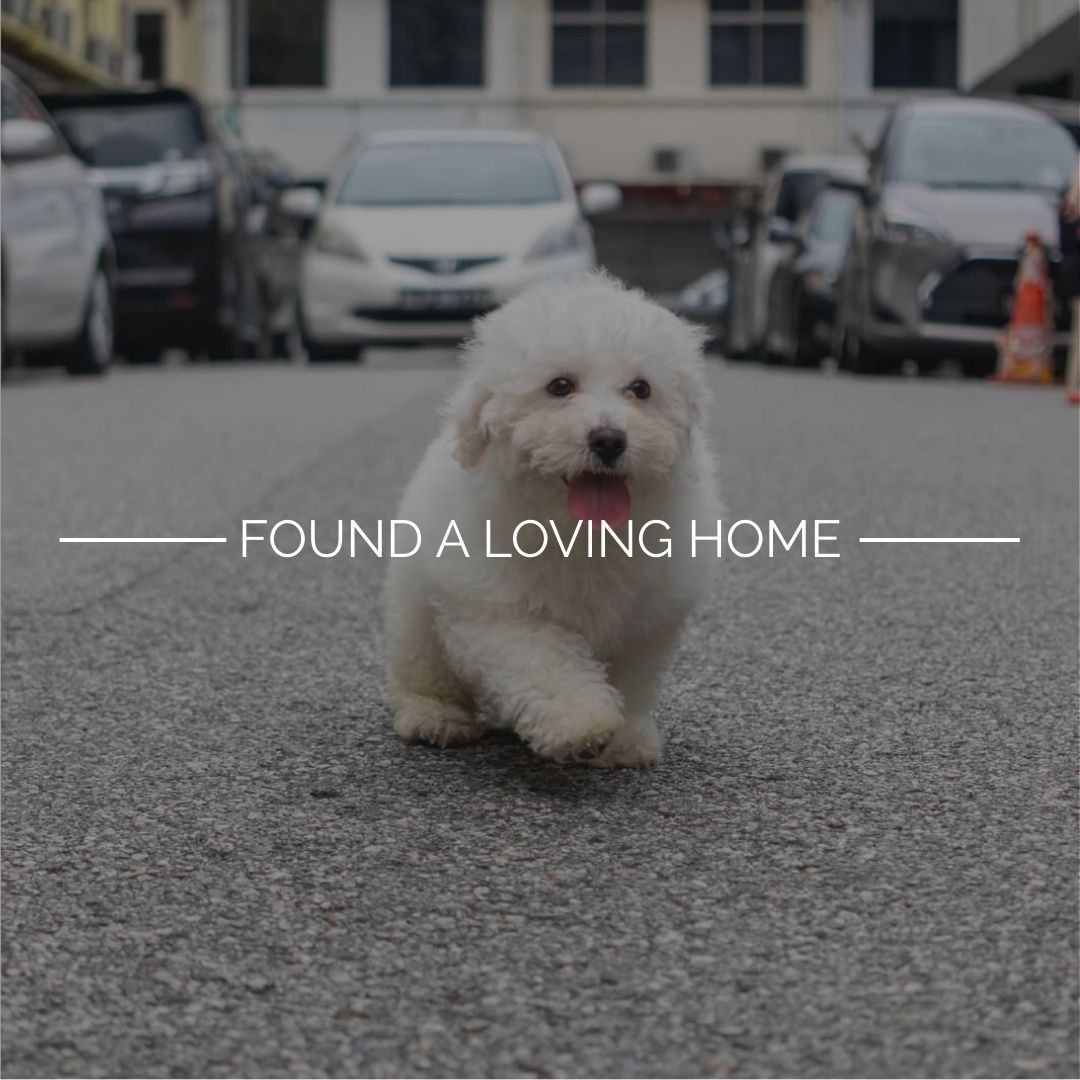
Bichon Frise (比熊犬)
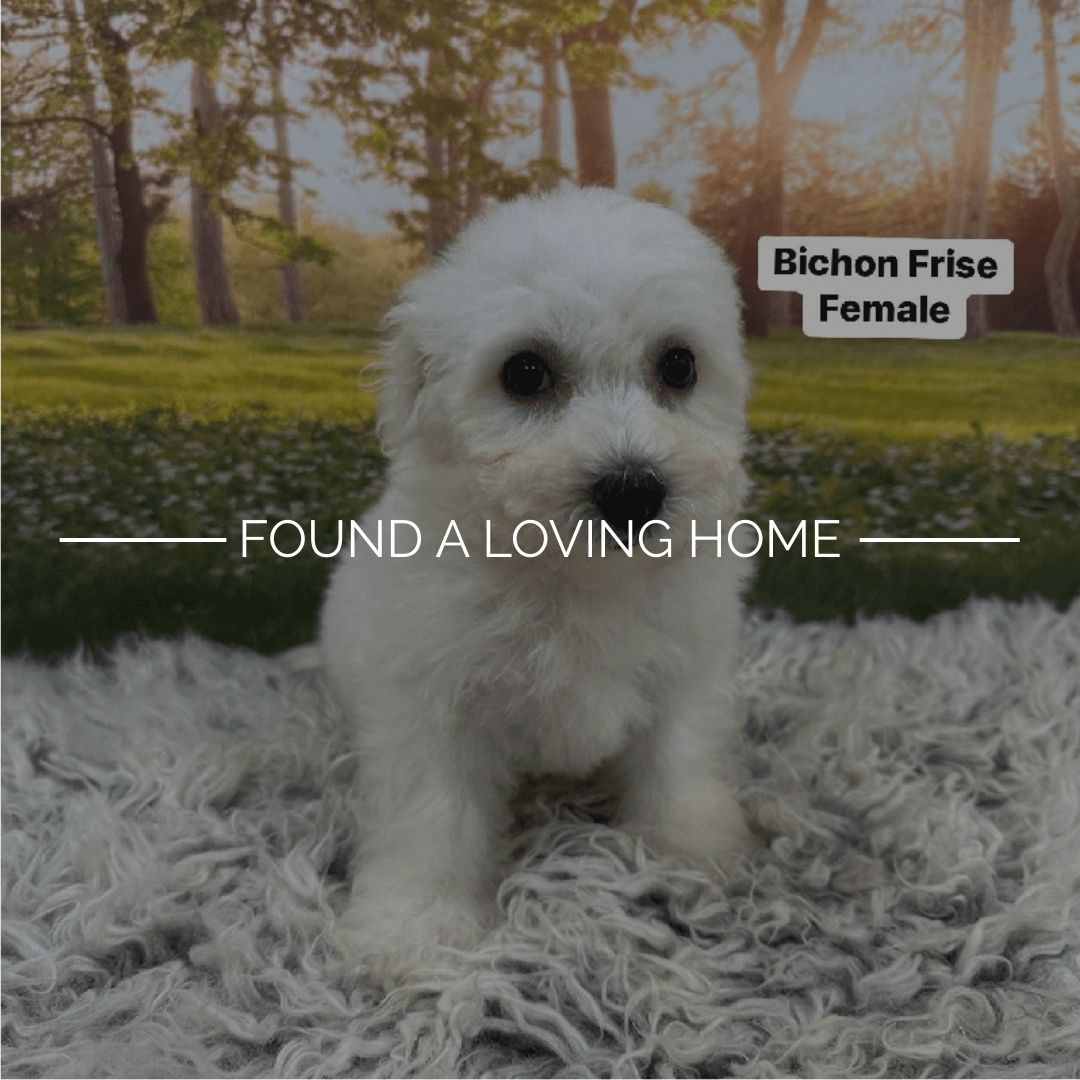
Bichon Frise (比熊犬)

Bichon Frise (比熊犬)
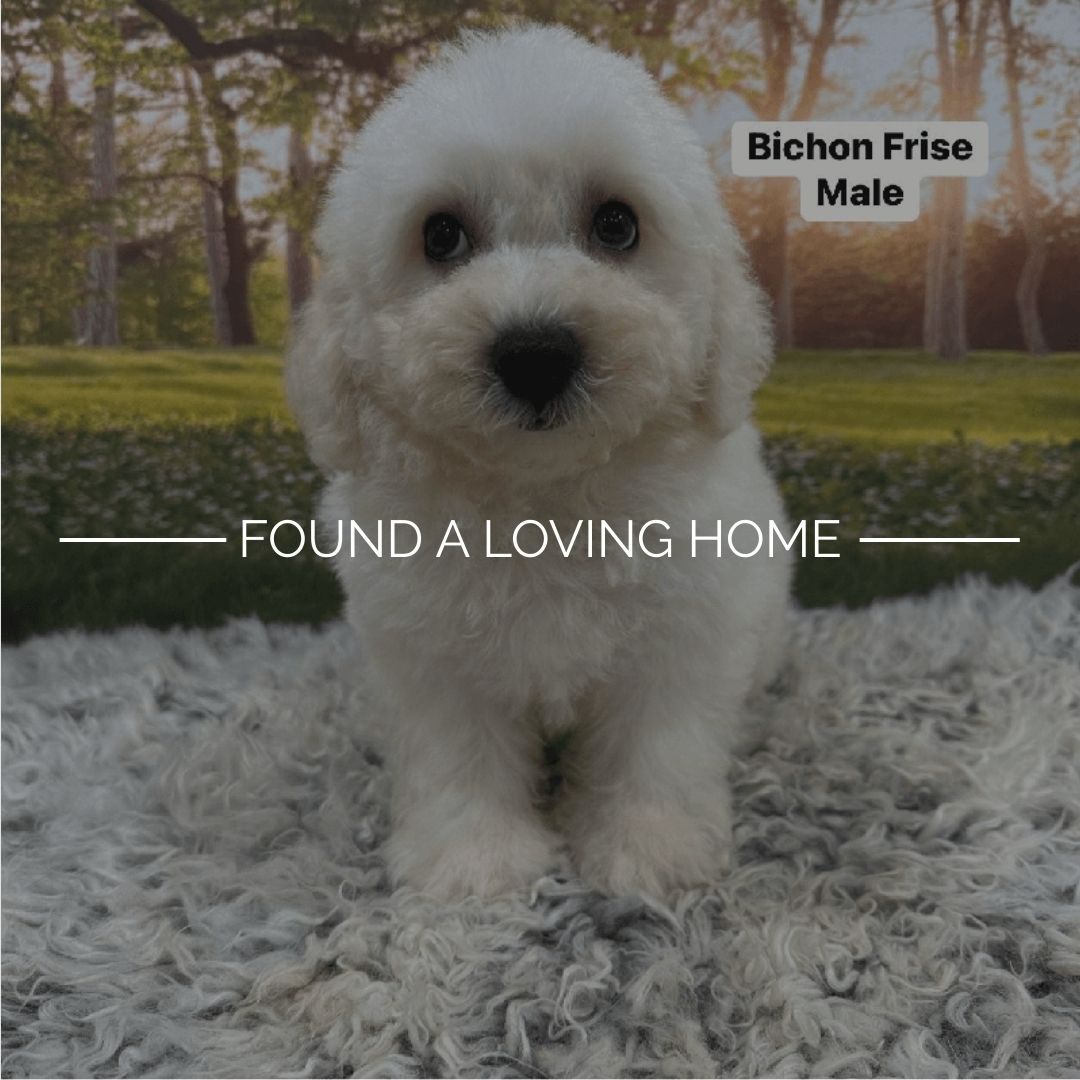
Bichon Frise (比熊犬)
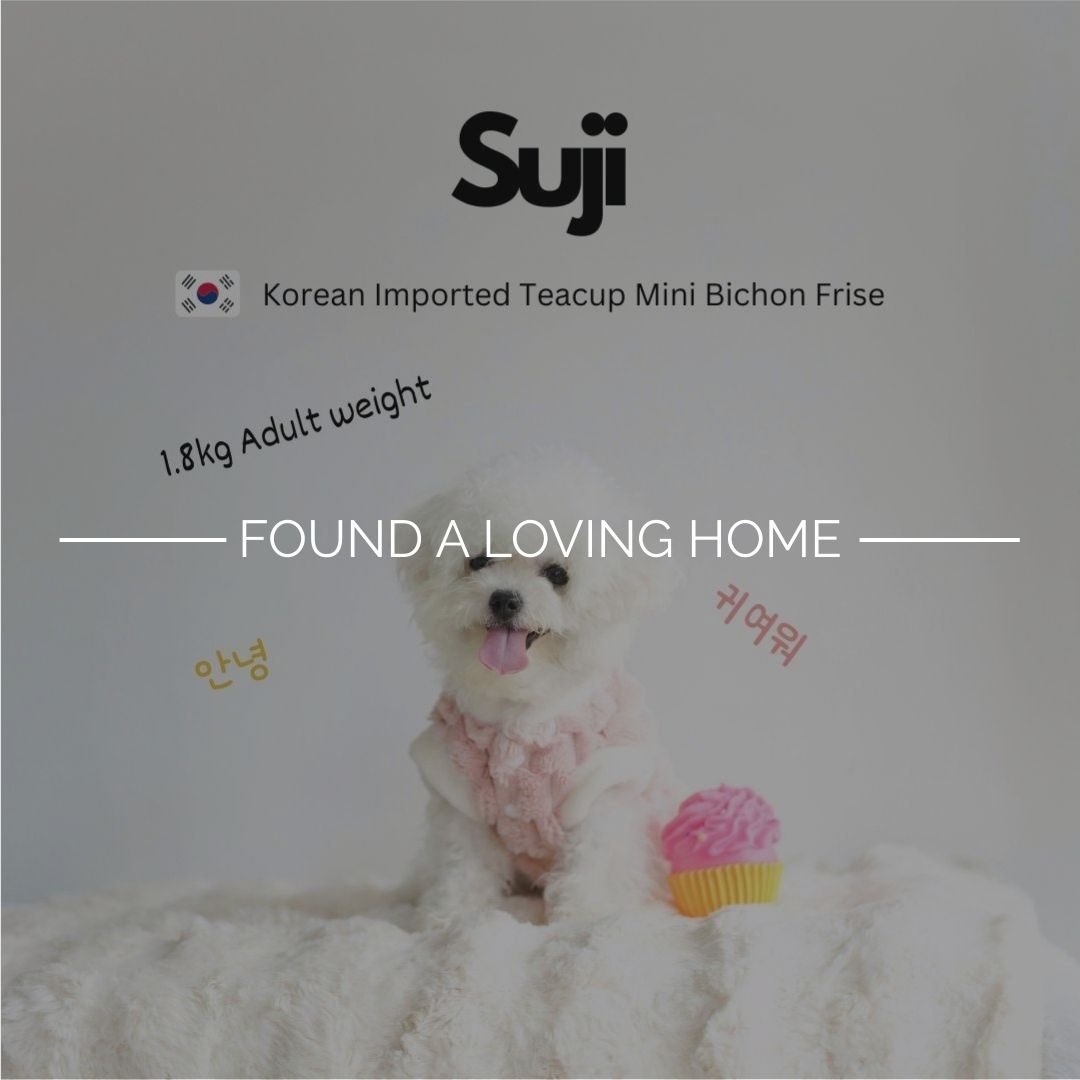
Bichon Frise (比熊犬)
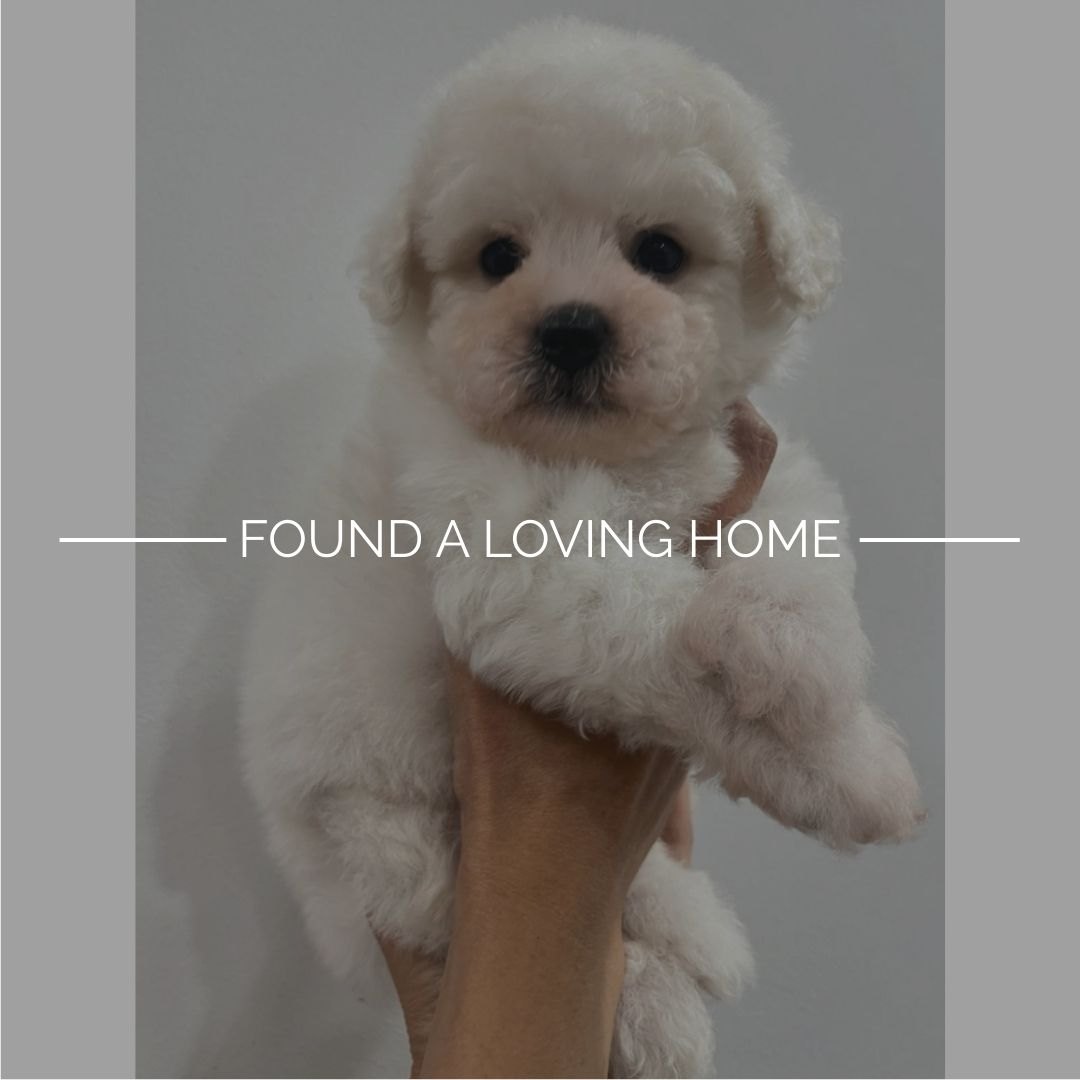
Bichon Frise (比熊犬)

Bichon Frise (比熊犬)
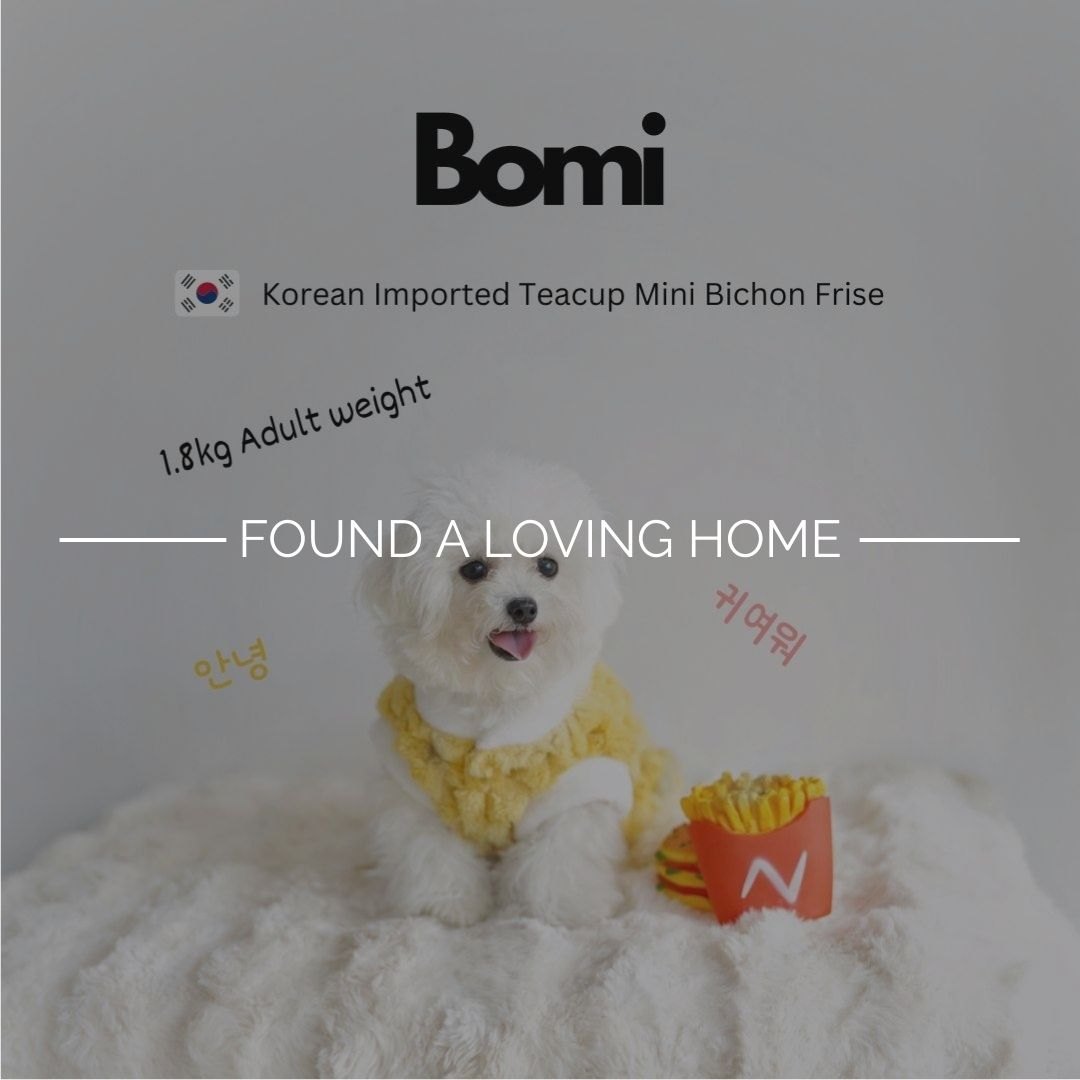
Bichon Frise (比熊犬)
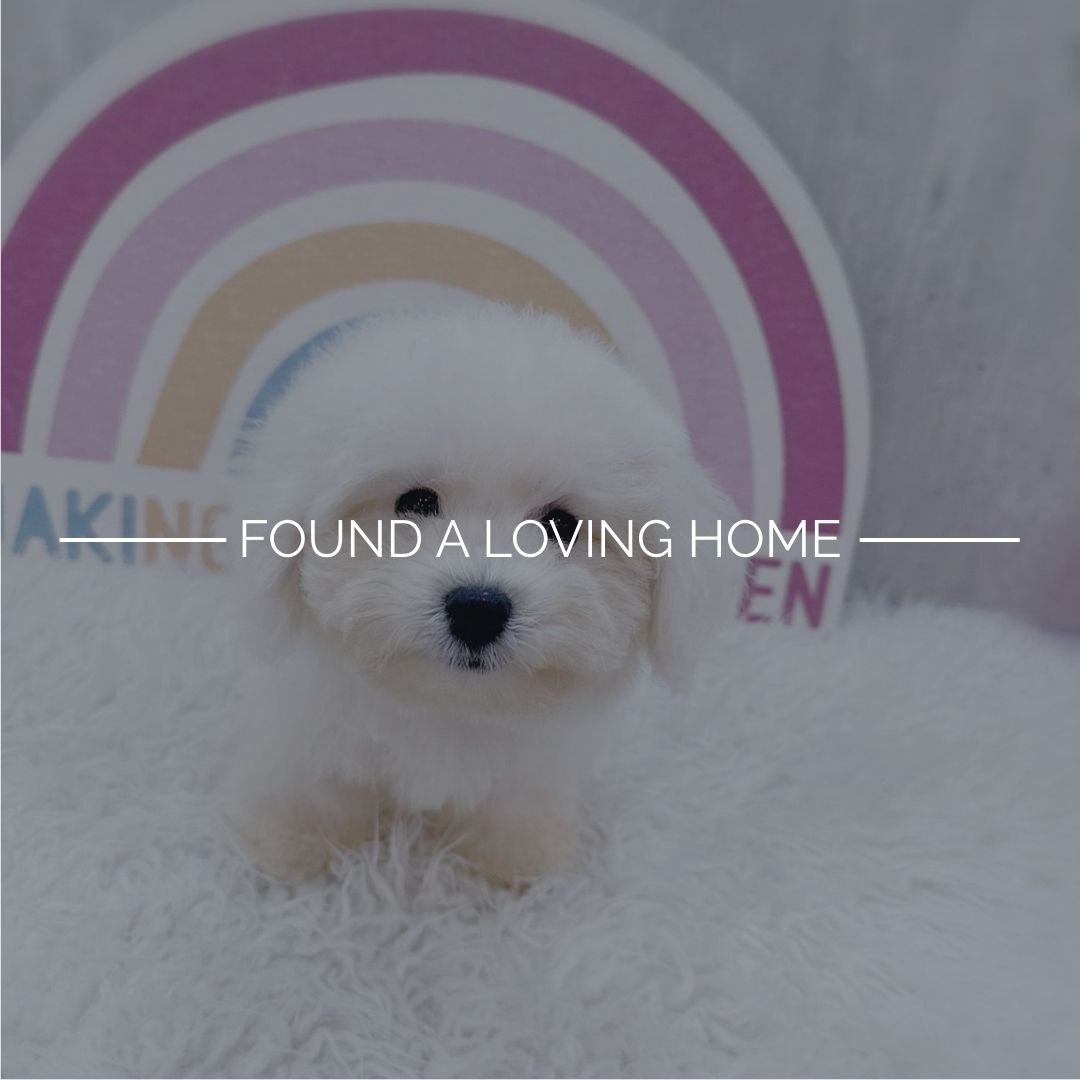
Bichon Frise (比熊犬)
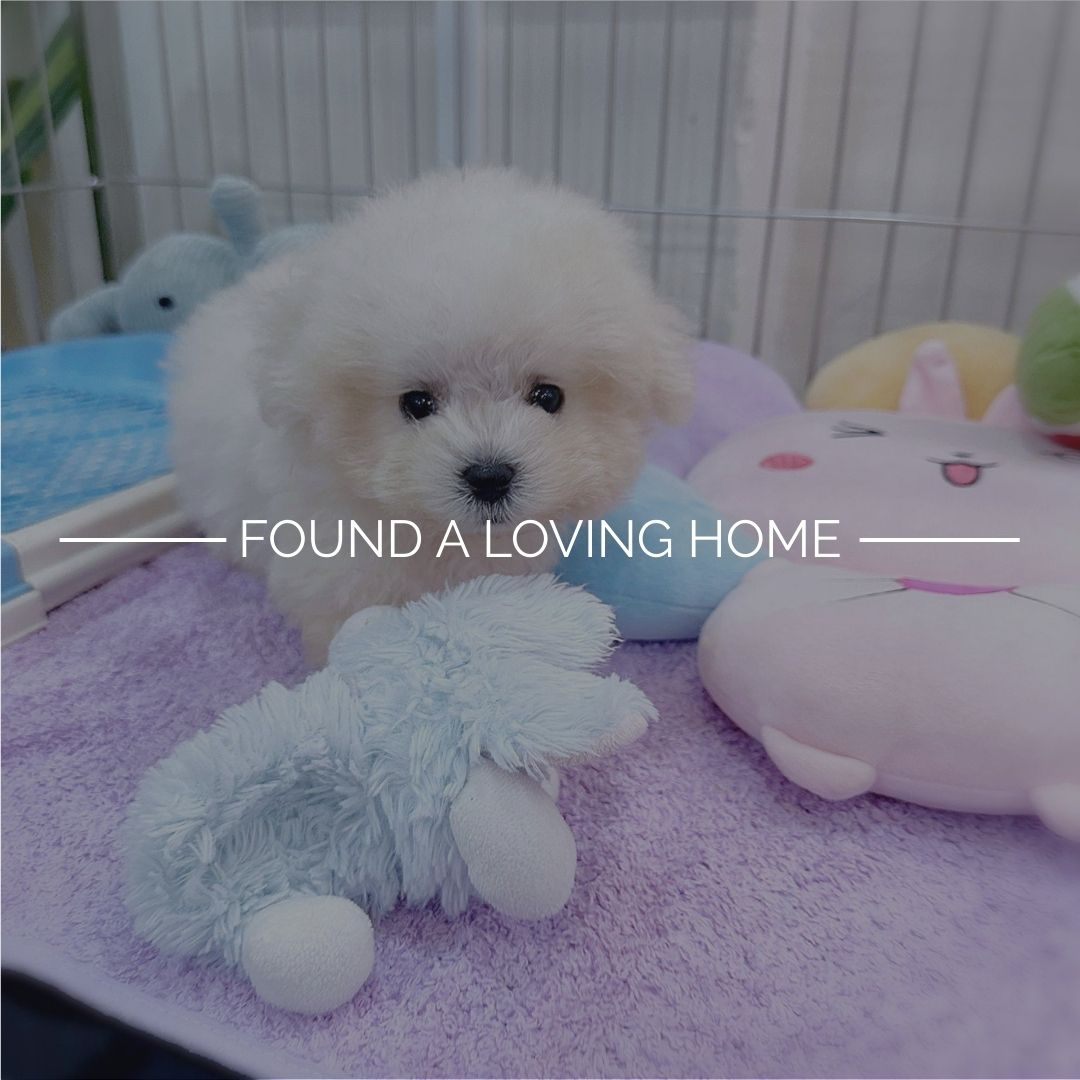
Bichon Frise (比熊犬)
Table of Contents
Bichon Puppies For Sale
All of our puppies at William Goh’s pet farm come with a free deworming, microchip, vaccination & health check.
Use Web Whatsapp? Click Here
Introduction
They were initially bred as companion dogs, known for their fluffy white coat and cheerful personality.
Their name comes from the French word “bichon” meaning small, long-haired dog.
Here are some of the most popular Bichon Frise names.
In fact, these hypoallergenic puppies became so popular among nobility that they spread throughout Europe, becoming one of the most lovable and sought-after dog breeds.
Bichon puppies are extremely affectionate and make excellent family companions.
They tend to be friendly with strangers and great with children due to their gentle temperament.
If you want a playful, ethical, and healthy puppy that doesn’t shed much, a Bichon Frise may be the perfect dog for you.
If you are looking for Bichon puppies for sale in Singapore, read on.
For more information on pet welfare and licensing in Singapore, visit NParks AVS.
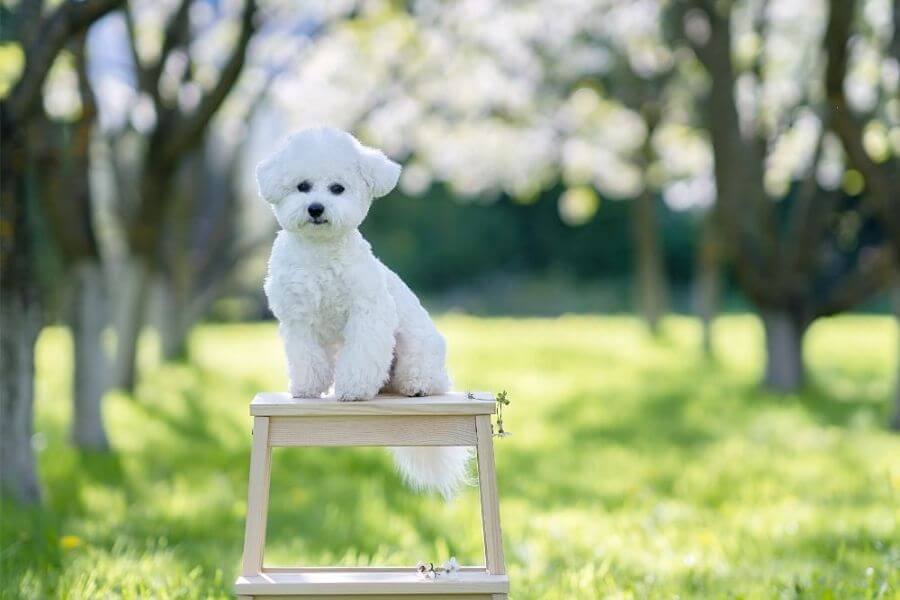
Highlights
Breed Information
Weight (male) : 3-5 KG
Weight (female): 3-5 KG
Life Expectancy: 12-15 years
Group: Toy Group
Temperament
Cheerful
Affectionate
Friendly
Gentle
Intelligent
Characteristic
Good with children and other pets
Low-shedding (hypoallergenic)
Energetic but manageable
Sociable and loves companionship
These adorable, hypoallergenic dog breed companions thrive on socialization and require regular grooming to prevent mats in their characteristic white fur.
Bichon frisé puppies are active little dogs with famous zoomies that will keep your family entertained.
When bringing home a bichon frise puppy, ensure they’re vaccinated and microchipped by an ethical breeding source.
Quality bichons make excellent pets for those concerned about allergies.
New puppy checklist should include proper shampoo for puppy bathing, training techniques to stop puppy barking, and establishing a relationship with 24-hour vet clinics.
Bichons typically have a good life expectancy but watch for common issues like cherry eye or skin irritations.
With proper care and lots of love, these furry friends will become a cherished addition to your forever home.
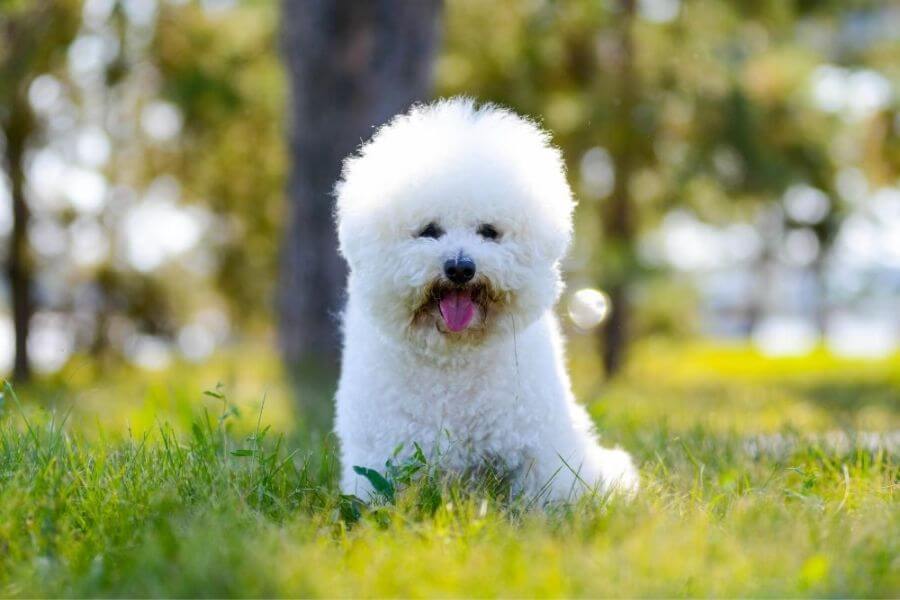
Grooming
Without proper grooming, your pet can become overweight, develop eye infections, or suffer from skin allergies.
Bathing your Bichon should be done every 3-4 weeks to preserve their natural oils while keeping them clean.
Brushing daily prevents matting in their fluffy hair and helps monitor for fleas, ticks, or yeast infections.
Professional trimming every 4-6 weeks maintains their signature rounded appearance and prevents vision problems.
Dental cleaning and nail trimming should be part of regular maintenance to prevent teeth issues and paw pain.
Remember, Bichon Frisé puppies need gentle introduction to grooming routines – establish this early while teaching puppy name and basic commands.
Many dog grooming salons offer specialized services for this popular breed with specific techniques for their unique coat.
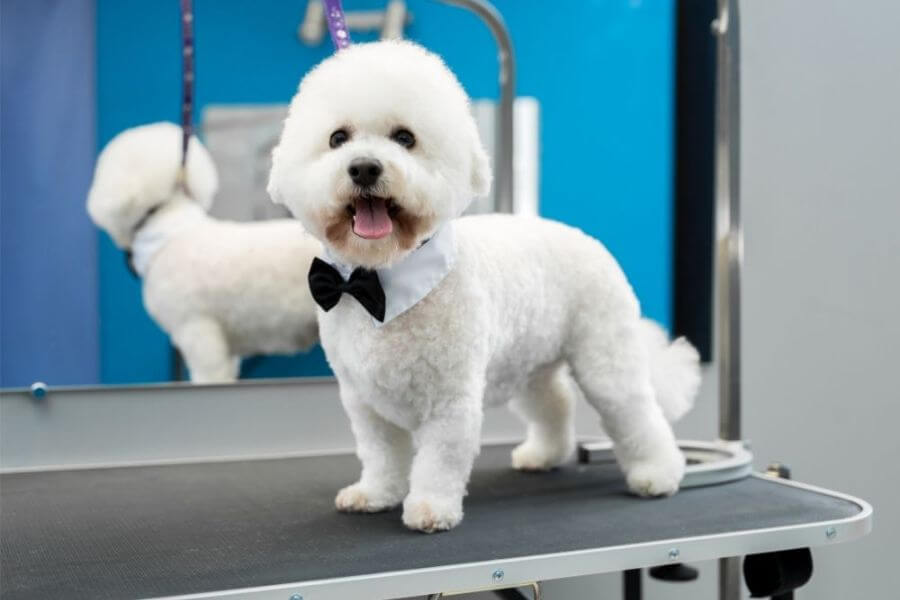
Personality
These fluffy white treasures are affectionate, gentle, and surprisingly playful despite their elegant appearance.
They’re known for their happy-go-lucky temperament and sociable nature, making them excellent family pets.
The Bichon Frisé is described as merry, curious, and adaptable to almost any living situation.
While potty training might require patience, their eagerness to please makes teaching them their puppy name relatively easy.
Bichons need regular puppy exercise and teething toys during their development stages.
They’re excellent with children and rarely show dog aggression, though proper dog training schools are beneficial.
Bichon puppies require regular grooming including teeth cleaning and coat brushing to maintain their signature fluffy appearance.
These pedigree Bichon Frise puppies are HDB approved breeds that adapt well to apartment living, though they may experience puppy separation anxiety if left alone too long.
With proper vaccination and care, these popular breeds make loving companions ready to go to their forever homes.
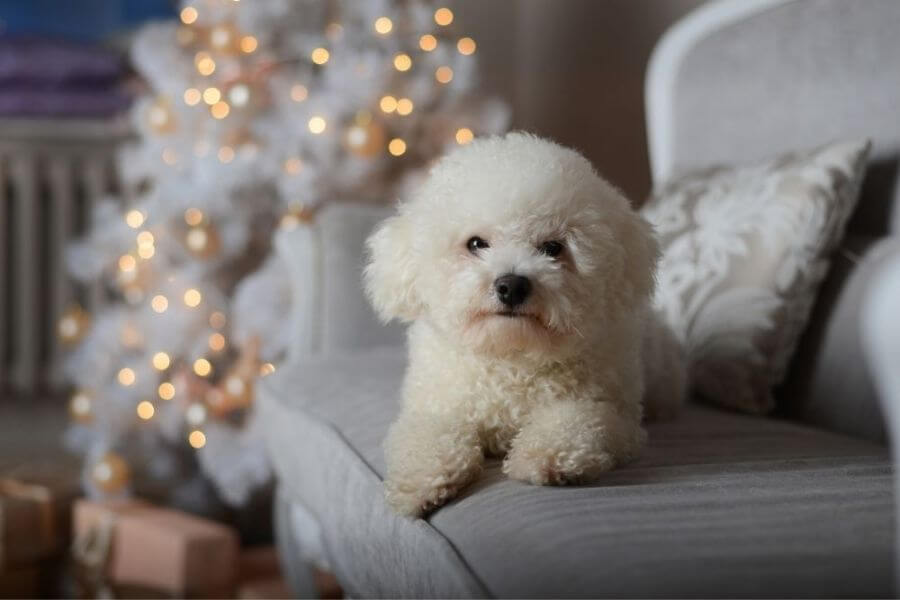
Temperament
These playful little companions are often described as “powder puffs with personalities” due to their fluffy dog coat and lively disposition.
Despite their small size, Bichon Frisé puppies have big hearts and form strong bonds with their families, making them excellent companions for both children and adults.
While they may occasionally display signs of separation anxiety through puppy whining or excessive barking, proper leash training and socialization can help manage these behaviors.
Bichons are intelligent and respond well to positive reinforcement, though they can be somewhat challenging to housebreak.
Unlike some breeds that may develop dog aggression, Bichons typically get along well with other pets when properly introduced.
Their friendly nature makes them poor watchdogs but perfect family pets who enjoy dog having fun at dog cafes or simply lounging on your lap.
Regular grooming is essential to maintain their distinctive coat, and a good breeder will provide guidance on how to brush and bathe your puppy properly.
Be aware that like all breeds, Bichons may develop health issues such as allergies or ear infections, so establishing a relationship with a reputable breeder who offers a health guarantee and proper vaccinations is crucial.

Size
Many families choose Bichon Frisé puppies because of their adorable appearance, but understanding their size is crucial for responsible dog breeding.
Typically, Bichon puppies weigh between 12-18 pounds when fully grown, with males sometimes slightly heavier than females.
Unlike some breeds with significant size variations, Bichons maintain a fairly standard weight range without miniature or toy classifications.
Their compact size makes them ideal for apartment living, though they still need regular walk time to prevent weight issues or diabetes.
When considering Bichon puppies from a kennel or breed registry, always verify they’ve received proper vaccinations and have been checked for common health concerns like allergies or hip dysplasia.
The American Kennel Club recognizes the Bichon as a non-shedding breed, making them suitable for families with children who have allergies, though proper feeding and care are essential to prevent issues like diarrhea or bloating.
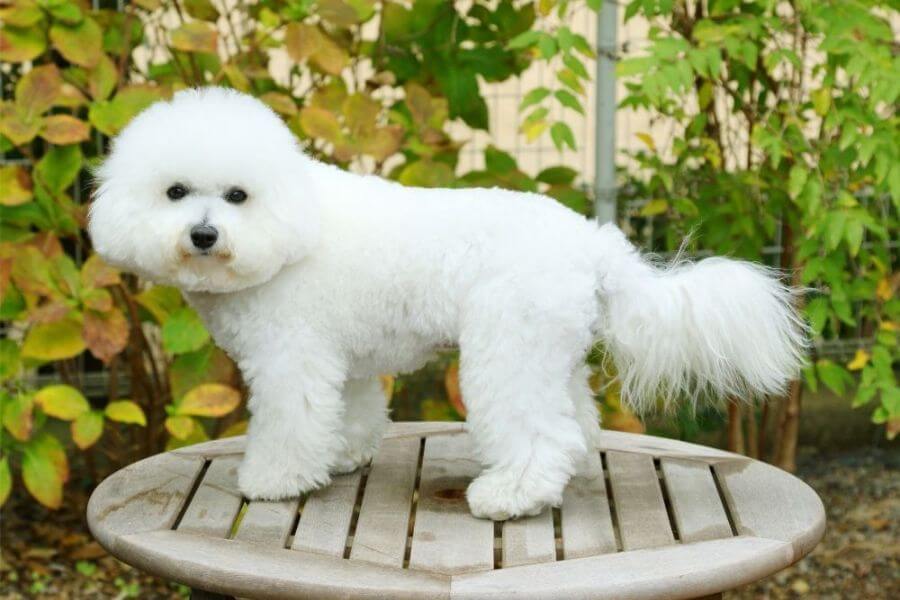
Upkeep
While adorable with their fluffy white coats, Bichon Frisé puppies require consistent upkeep to maintain their health and appearance.
Regular grooming prevents their fur from developing painful mats or yeast infections that can cause excessive paw licking.
Proper vaccinations are essential for Bichon puppies to protect against parvo virus and other serious conditions that may cause symptoms like vomiting, fever, or blood in poop.
New Bichon owners should research pet insurance options to cover potential health concerns such as allergies, pancreatitis, or seizures that the breed may experience.
When bringing home your Bichon puppy, establishing a routine helps teach your puppy their name and proper behavior to prevent issues like puppy biting or excessive barking that might upset neighbors.
If you plan to introduce your Bichon puppy to an older dog or child, do so gradually and under supervision to ensure positive interactions.
Consider decisions about spaying or neutering early, and discuss microchipping and licensing requirements with your veterinarian.
Monitor your Bichon’s health closely—pale gums, breathing fast, dry nose, or not eating could indicate they’re sick and need immediate attention.
When transitioning to new dog food, do so slowly to avoid constipation or dog farts that can make your puppy quite smelly.
Remember that Bichons may experience separation anxiety when left alone, so providing proper sleep training and comfort items can help ease their stress.
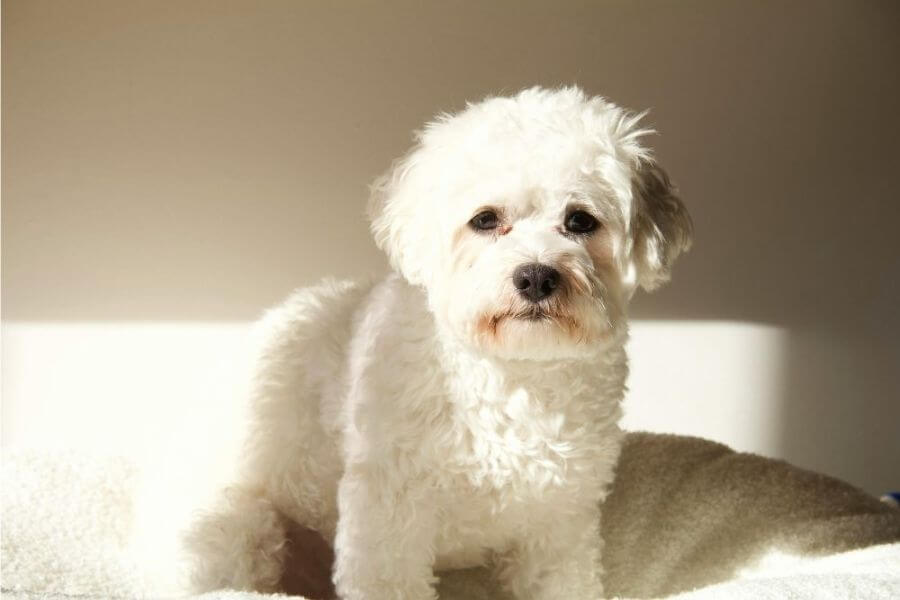
Health
Approximately 1 in 5 Bichon puppies may develop skin allergies, so monitoring for excessive licking paws or other signs of discomfort is important.
These fluffy companions are prone to dental issues, eye problems, patellar luxation, and can sometimes develop yeast infections in their ears or between skin folds.
When considering a Bichon puppy, ask the breeder about the bloodline and whether the parents were tested for common breed-specific conditions to ensure your puppy’s health.
If your Bichon begins reverse sneezes, panting excessively, or shows signs of pain, contact your veterinarian immediately.
Regular cleaning of anal glands is recommended as Bichons can experience discomfort when these become impacted.
When introducing your Bichon puppy to an older dog, do so gradually in a neutral space to minimize territorial responses like humping or aggression.
Teaching your puppy their name early helps establish a strong bond and makes puppy training more effective.
Bichon puppies should be vaccinated on a schedule similar to other breeds, with initial shots starting at 6-8 weeks and continuing until about 16 weeks.
If your Bichon isn’t eating, has blood in urine, or has consumed harmful foods like chocolate or grapes, seek immediate veterinary care.
During food transition, mix old and new dog food gradually over 7-10 days to prevent digestive issues that could result in loose dog poop.
Consider pet insurance to cover unexpected health concerns like nail issues or eye gunk removal.
Your puppy should be microchipped and licensed according to local regulations for identification and safety.
For Bichons with occasional hiccups or a smelly dog issue, proper grooming and regular visits to dog bakeries for dental treats can help.
Swimming in dog pools can provide excellent low-impact exercise for Bichons, particularly beneficial for joint health.
For busy owners, pet taxi services can ensure your Bichon makes all necessary veterinary appointments.

History
Though its lineage dates back to the 14th century, the breed’s refinement truly began in 16th century France.
Called “Bichon à poil frisé,” which translates to “curly-haired lap dog,” these fluffy companions were adored by nobility.
The breed’s development created a versatile, hypoallergenic dog perfect for families concerned about allergies or introducing a puppy to an older dog.
Bichon puppies were brought to America in the 1950s and registered with the AKC in 1971.
During this time, owners learned proper care including vaccination schedules, fleas treatment, and how to transition dog food appropriately.
Today, these charming companions remain popular for their friendly temperament and minimal eye gunk issues, making them beloved family members nationwide.
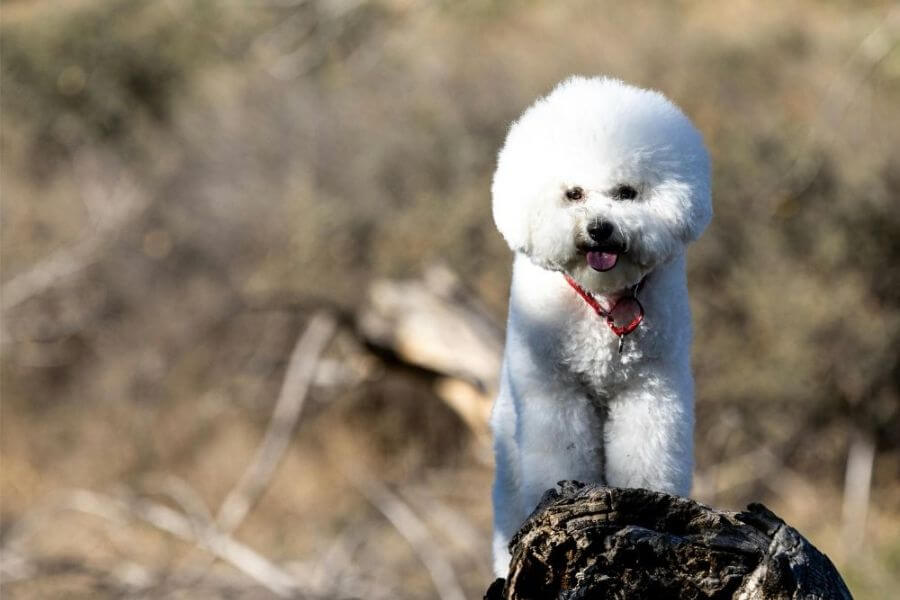
Exercise
These fluffy companions need regular activity to prevent them becoming overweight or developing behavioral issues.
If you live in apartment settings, consider investing in dog runs for low-impact exercise that’s gentle on their joints.
Be cautious during pregnancy as exercise should be modified, and always supervise around water to ensure safety.
For indoor activities, play gentle games that teach your puppy their name while providing mental stimulation.
When introducing a Bichon Frisé puppy to an older dog, do so gradually in a neutral space with plenty of positive reinforcement.
Before bringing your Bichon puppy home, ensure they’re properly vaccinated and have a microchip for registration.
Monitor their eating habits closely, as a dog not eating could indicate health issues like allergies or yeast infections.
Remember that Bichon puppies shouldn’t overexercise—start with 5 minutes per month of age, twice daily.
Keep harmful foods not to feed your dog like chocolate and grapes out of reach, as these can cause serious health problems requiring immediate pain relief.
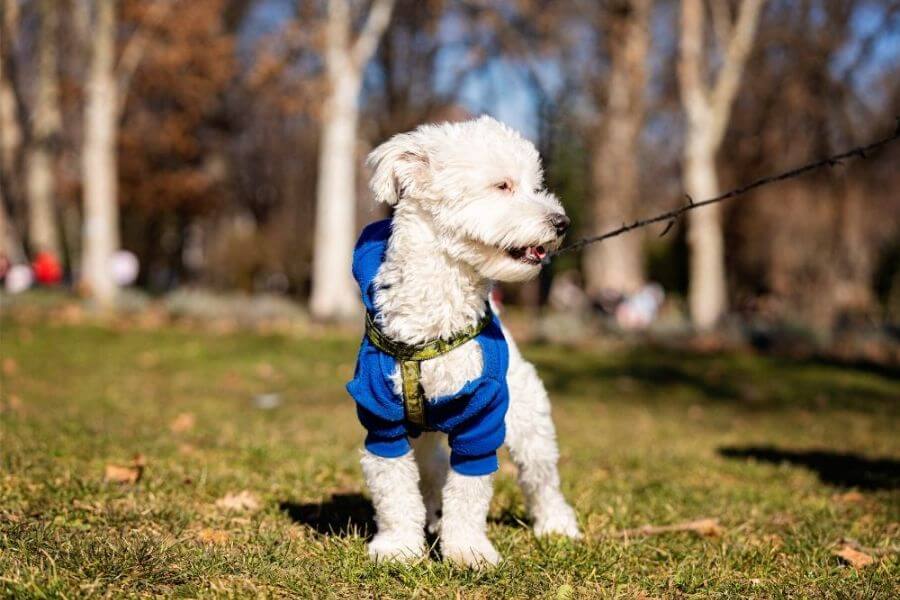
Training
Unlike some breeds, Bichon Frisé puppies are eager to please, making basic training more manageable for first-time owners.
You’ll find they respond exceptionally well to positive reinforcement, particularly when treats and praise are involved in teaching them their puppy name.
Socialization is crucial—introduce your Bichon puppy to older dogs carefully, ensuring both pets feel comfortable and safe during the interaction.
Bichons thrive on attention and human companionship, which can make crate training initially challenging, but consistent routines help them adjust quickly.
Be mindful of health considerations during training—Bichon puppies are prone to allergies, so select training treats carefully to avoid triggering reactions or upset stomachs during dog food transition.
Watch for signs of health issues like dog eye gunk or yeast infections, which might affect their training focus—a comfortable puppy learns better!
Remember to keep your Bichon’s vaccinations current and obtain a proper license, especially if you plan to use dog runs in your neighborhood.
Training should include proper supervision around hazards—Bichons are curious and might ingest dangerous items (if your dog ate chocolate or your dog ate grape, contact your vet immediately).
Address behavioral issues early, like excessive barking that may disturb neighbors’ dogs barking too.
Structured daily schedules for potty breaks, playtime, and training sessions will help your Bichon puppies for sale develop into well-mannered companions who bring joy rather than frustration to your household.
With consistent training and proper care, including regular health check-ups to prevent issues like catching cold, your Bichon will become a cherished family member.
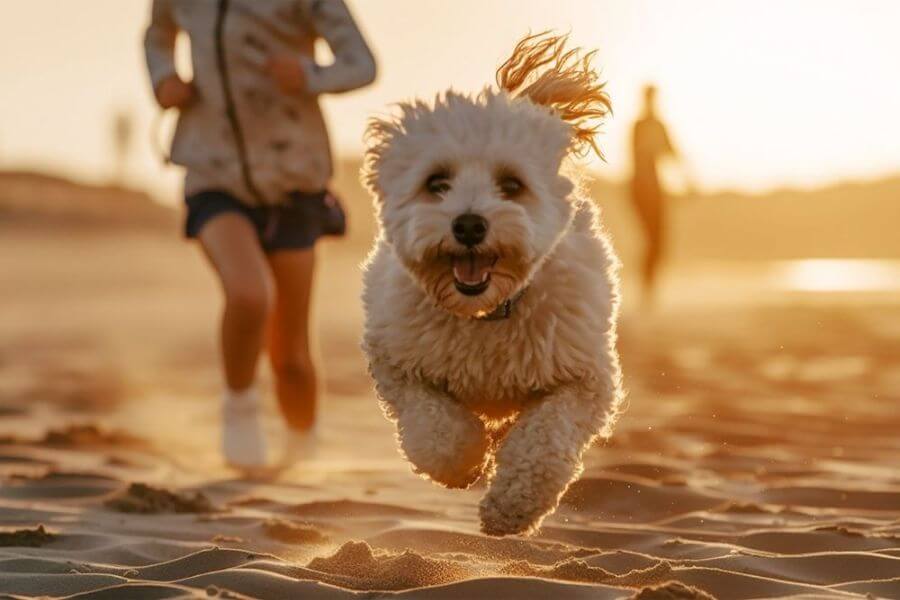
Nutrition
As with any breed, consulting a veterinarian before bringing home your Bichon Frisé puppy is essential, especially if anyone in your household has allergies.
Many Bichon owners find this breed ideal because they’re hypoallergenic, making them perfect for families with allergy concerns.
When feeding your Bichon puppy, establish a regular schedule of 3-4 small meals daily, transitioning to 2 meals when they reach adulthood.
Quality puppy food specifically formulated for small breeds provides the nutrition Bichon puppies need, helping prevent common issues like yeast infections that can affect their sensitive skin.
Avoid feeding your Bichon human food, particularly foods high in salt or oil which aren’t suitable for these delicate dogs.
When introducing a new Bichon puppy to your home where an older dog resides, proper nutrition for both pets helps ease transitions and reduces stress-related behaviors.
To transition your puppy to new food, gradually mix increasing amounts of the new food with decreasing amounts of their current food over 7-10 days.
Never feed your Bichon puppy from raised bowls, and avoid exercise immediately after meals to prevent bloating issues.
Foods toxic to Bichon puppies include chocolate, xylitol, caffeine, onions, garlic, grapes, and certain nuts—ingestion may require emergency care.
Remember to register your purebred Bichon with the appropriate kennel club, and ensure they’re fully vaccinated before introducing them to neighbors’ dogs.
Teaching your Bichon puppy their name early helps with training and prevents unwanted behaviors like excessive barking, which neighbors might find disruptive.
Special birthday treats from dog bakeries can be wonderful for celebrations, but always check ingredients to ensure they’re safe for your precious Bichon.
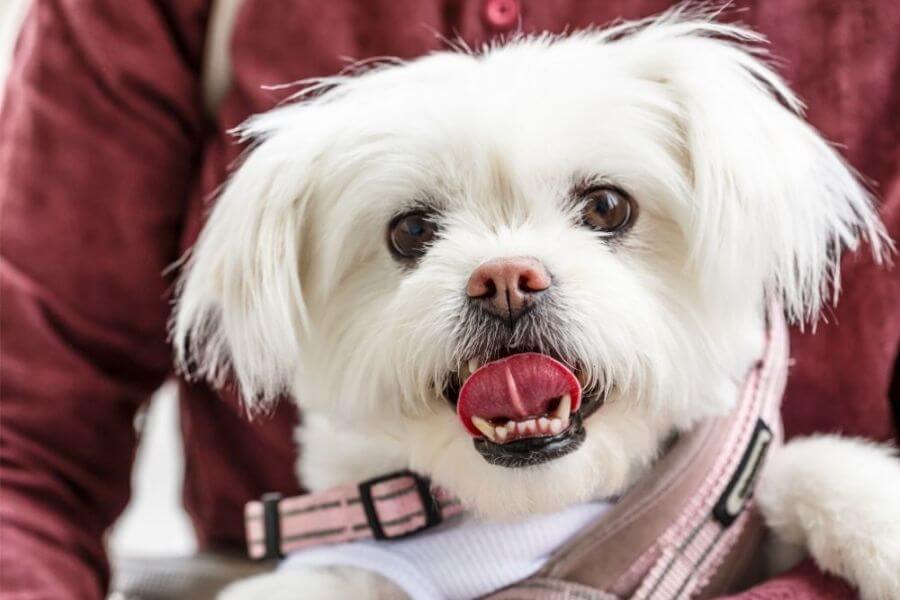
Children And Other Pets
When you introduce a Bichon Frisé puppy to an older dog, it’s important to do so gradually and in neutral territory to prevent territorial behavior.
Teaching your puppy their name early on creates a foundation for further training and helps them integrate into your household routine.
While Bichons are typically friendly with neighbors’ dogs, they may occasionally bark at unfamiliar sounds, so early socialization can help minimize excessive reactions to neighbors’ dog barking.
These fluffy companions typically get along well with cats and other small pets, especially when raised together from an early age.
Be mindful of your Bichon’s health by ensuring they’re properly vaccinated before introducing them to other animals, as this prevents the spread of common issues like yeast infections.
Their gentle and playful nature makes them ideal companions for families with children of all ages, though as with any breed, young children should be taught how to properly handle their fluffy friends to ensure positive interactions for everyone.
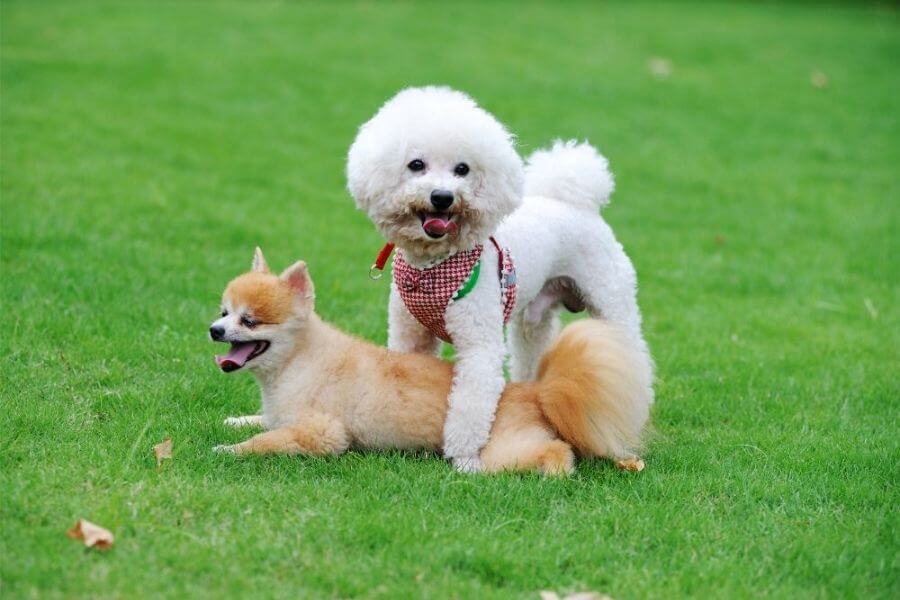
Other popular breeds
YORKSHIRE TERRIER
SHIH TZU
JAPANESE SPITZ

